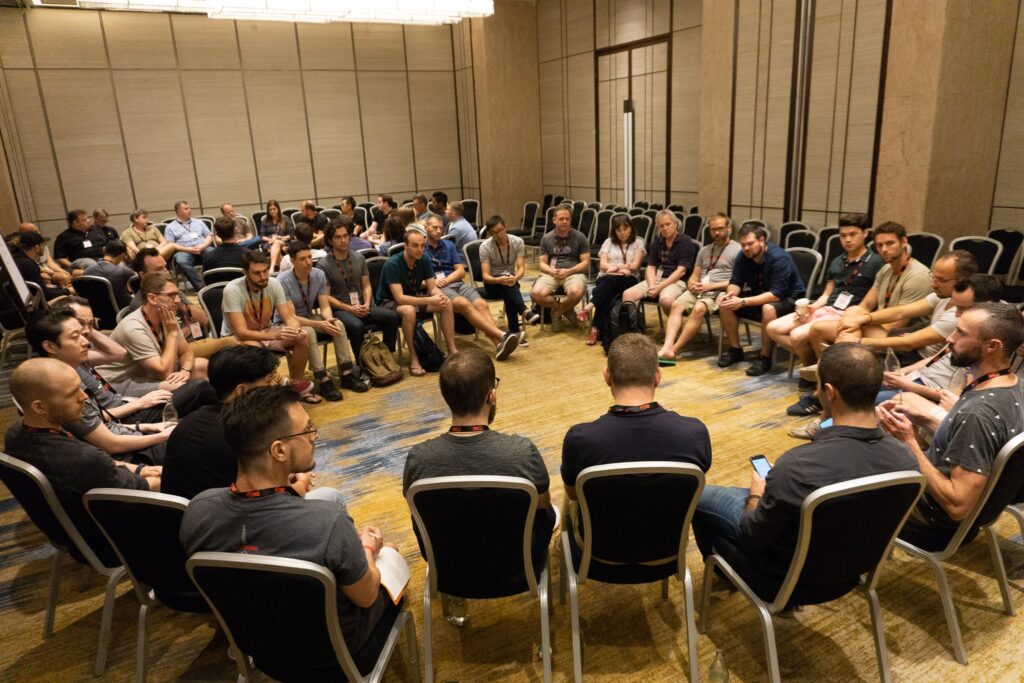Where most people are chasing the next promotion or seeking millions in funding for their tech startup, lifestyle business owners walk in a different direction.
If you’re like me and pursue a more fulfilling life with greater control of your time, all while allowing flexibility to work from anywhere in the world, a lifestyle business might be a good fit.
It’s not all working from your laptop at the beach for an hour a day, as some self-proclaimed gurus might tell you though. You won’t be quitting your job this week and vacationing in Bali the next. When executed well, however, you are eventually left with more time on your hands to do the things that matter.
I’m not here to sell you on the idea of lifestyle businesses. The truth is, it’s not the right fit for everyone. But if this sounds like a life you want to build, I hope this article gives you insight into this form of business, along with some ideas and examples to help you to get started.
Why Should You Listen to Me?
I didn’t intend on creating a lifestyle business; it just kind of happened. What started off as a website to practice my knowledge of SEO ended up becoming an affiliate website that took off on its own.

That’s not to say I hadn’t considered the idea of a lifestyle business beforehand. I found my inspiration inside the pages of The 4-Hour Workweek, a book that is heavily criticised but is a great reminder to “keep it simple and outsource everything”.
It answered some questions, prompted some other questions, but more than anything else—it got me thinking.
My first website showed me it was possible. The skills I developed while building that site helped me to begin consulting, which gave me the freedom to leave Australia to live in a location more in line with my and my wife’s goals. Later, I built a small Fulfillment by Amazon business, and after that some productised services, rank and rent websites, and larger affiliate sites.
I am no expert. But I have learned from taking action. Failure preceded any of these small successes but has brought me to where I am today. I encourage anyone who wants to build a lifestyle business to research what others have done, not the story they are selling.
What Is a Lifestyle Business?
In the simplest of words, a lifestyle business is any business that supports and enables the lifestyle you want to create. That may involve working from your home during the time of day when you have the most energy, or while traveling the globe. The choice is yours.
We can all debate what really qualifies as a lifestyle business. For some, it involves an online store and for others, it’s a weekly podcast.
That said, I’d like to point out that a lifestyle business works best for certain kinds of people. If climbing the corporate ladder and building a million-dollar enterprise gets you excited, then perhaps a lifestyle business should not be at the top of your list.
But if you seek a stable income that supports your lifestyle without giving in to the hustle of a 9-5, then you’ll find many benefits here that your spot in a cubicle won’t provide.

Lifestyle Business vs Startup: What They Don’t Tell You
It’s easy to see why many people confuse startups and lifestyle businesses. They’re both new ventures that you’re going to be putting time and effort into.
But while startups focus more on rapid growth, lifestyle businesses take a different approach.
Let’s Talk Funding
Unlike startups, you probably won’t need any venture capital for your lifestyle business. This is good as you’re responsible only for yourself. Lifestyle business owners rely on personal funds, savings, or small business loans—though the latter isn’t as common.
You’ll have more room to work at your own pace on your own goals without having to worry about any “aggressive growth” investors breathing down your neck. This takes away a lot of the stress which comes with starting your new business.
9-to-5 Commitment
Don’t let the high-end lifestyle fool you. Funded startups are a full-time job that is all-consuming. From hiring the right people to making sure they are constantly hitting targets, if you don’t own 100% of the shares, it’s unlikely you’ll own 100% of your time.
A lifestyle business can be a breath of fresh air for those looking to get away from this never-ending hustle. Being in charge of your own schedule is liberating and once you have a lifestyle business that’s automated (either using computers or people), you can greatly reduce your time commitments too.
Risky Business
There’s a certain amount of risk that comes with startups. For every startup that makes it big, there are a hundred others that bite the dust. That shouldn’t deter you if building a startup is something you really want, of course.
On the other hand, you’re likely to have less overhead costs as a lifestyle business and this works well for entrepreneurs who aren’t too keen about putting everything on the line.

6 months ago, before much of the world was locked down with this COVID-19 situation, many people may have been dreaming about multi-million dollar exits. Today things are very different.
Many high-profit low expense lifestyle businesses have been able to adapt and remain viable, whereas many businesses that relied on future gains from high valuations by reinvesting everything and taking on debt have faced much greater challenges.
Why I Like Lifestyle Businesses
Not all businesses are created equal. When faced with the choice of enjoying additional free time or earning more money, many lifestyle entrepreneurs will choose to reclaim their time.
That doesn’t mean your business can’t grow its revenue though.
In fact, this sort of flexibility is what makes lifestyle businesses so versatile when compared with a traditional business.
Big, Small and Everything Else in Between
A lifestyle business is whatever you want it to be.
“When you make a company, you make a utopia. It’s where you design your perfect world.”
DErek sivers
You may only want to commit 6 hours a week this month and go full throttle the next. There’s no pressure of doubling sales every month unless that’s what you want.
Being able to scale up or slow down is not something a lot of businesses can brag about. The fact that you can fine-tune all these aspects is why lifestyle businesses have a growing appeal.
Less Waiting, More Living
With a business that’s set up to serve your lifestyle, you get to really live more. This can mean taking extended vacations or finally getting back to a hobby you’re passionate about. In many cases, it results in turning that passion into another lifestyle business.
You may not have to wait around to enjoy the profits of your business either. While startups and corporate business models take years to see make profits, this can be much quicker for lifestyle business owners. When you don’t have an entire enterprise to fund, you can likely fund your living expenses much faster.
Location Independent? Hell Yeah!
If you could work from literally anywhere in the world, would you? Most I know would grab that opportunity without batting an eyelid. But location independence is much more than bragging on Instagram.
If you play your cards right, becoming a location independent entrepreneur can open a lot of doors too. You can travel to expand your network opportunities and meet like-minded people who share the same vision as you.
I’ve been lucky enough to meet clients, business partners, and friends in too many countries to count nowadays. Lakeside meetings in Whistler, hotala drinking sessions in Taipei, conference coffee breaks in Barcelona, and complex many-course team dinners in Bangkok have all contributed in some way to my businesses today.

You can also use this independence to be more efficient. If you aren’t spending 2 hours traveling to work every day, that time can now be spent growing your business or with your family.
Do lifestyle businesses have to be location independent? Nope, not at all. I remember a burger bar in my home city. They’d close whenever they felt like it, without warning.
I recall visiting once and there was a sign on the door saying “Closed because I feel like it.” I got the impression the owner just ran the business for some extra cash but mostly so they had a space for parties and social groups. It was their version of a lifestyle business and given how long they’ve been in business, it must work for them.
Starting a Lifestyle Business: What You Should Know
Instead of jumping right in and trying to find the “right” business, take a moment to pause and think about the kind of life you want to design.
This is always tricky because traditional business wisdom says to “build what your customers want”. I’ve done that before, without considering what I wanted, and it wasn’t ideal.
But you can’t go to the other extreme either and only design something for you, either. You really need to find a middle ground where you are providing a product or service that people want, in a scenario that you also want.
How many hours of work do you want to put in? What sort of work do you see yourself doing? Write it down and get clear on these things.
Once you’ve got a good idea about what you want to create, you can filter these ideas until you’re left with something that suits your goals.
Ideally, you’ll want to minimize your involvement in day-to-day operations of your business. For some businesses, this involves hiring, but you can also work to automate as much of your business as possible.
This way you can spend your time working on your business, not in your business.
Remember, you are aiming for flexibility and time freedom so don’t spend the same amount of time in an operational capacity as you would at a regular job—it’s counterproductive.
Play to Your Strengths
All your skills and interests can be utilized when building a lifestyle business. You could be a master at digital marketing and it would be a crime not to use this expertise to get your business noticed.
A common mistake I see many entrepreneurs making is jumping aboard a business idea that has little to do with their profession or hobbies, just because it’s “trendy”. Trends come and go, you don’t want to spend effort growing a business that is only relevant for a few years.
Instead, put your skills to good use and do the one thing that guarantees results—creating value. It doesn’t matter how passionate you are about your idea. If your clients or customers can’t see the value, chances are it won’t work.
Ideas for a Lifestyle Business
Lifestyle businesses aren’t limited to blogging and starting an ecommerce business. While these are some of the popular examples, there are plenty of other options.
In my view, freelancing doesn’t really count as a lifestyle business though some may argue otherwise. The same goes for consulting, as it has a direct relationship with your time. They really aren’t very different from a regular job (apart from being location independent).
That said, if you can charge a high hourly rate or subcontract the work, it can be an interesting way to gain some location and time freedom which can then give you an opportunity to build your lifestyle business—a stepping stone if you will.
So what are some examples that you can tap into? Below are a handful of lifestyle business ideas to get you started. Remember this isn’t an exhaustive list, just some ideas that I feel work well.
Affiliate Marketing
Affiliate marketing is fairly straightforward and quite popular because of it’s low barriers to entry. It works by promoting someone else’s product or business using some form of tracking, like an affiliate link or a coupon code. Whenever someone purchases the product and you’re attributed to the sale, you earn a commission.
The best part about affiliate programs? You don’t have to spend time creating or supporting the product.
What few people seem to mention, however, is although it’s easy to get started in affiliate marketing, it can take a while to earn a decent income from it. If you’re relying on organic search traffic, the learning curve is steep and even then you might need years of effort before earning more than just beer money.
This said, if you can dominate in Google for affiliate marketing niches, your SEO skills are probably good enough to dominate in almost any other business model too.
This sort of marketing works for both digital and physical products but the profit margins for digital products are generally higher. In many cases, they also bring recurring commissions, which can really compound over time.
Amazon FBA Business
Fulfillment by Amazon (FBA) is probably one of the easiest ways to get started with a “legitimate product business”. The most lucrative opportunity is to “private label” your products—where you find quality products, put your logo and own packaging on them, and then ship them to Amazon.
After creating a listing in their system and sending your products to Amazon’s fulfillment centers, they pretty much do the rest. Once you get a sale, Amazon handles everything from payment processing, delivery, customer service, and returns.
The power here is in leveraging Amazon’s enormous customer base. If you’re someone who enjoys sourcing products and dealing with logistics then you’ll enjoy running an FBA business.

The downside of this business model is that there are some fairly significant startup costs. Aside from purchasing and shipping your product, Amazon takes a sizable cut. But if you do it right there’s a lot to earn.
Most FBA sellers I know are “paper millionaires”. Their cash is tied up in their business, so often they have to sell that business to get their payday and become a “cash millionaire”.
Become an Investor
Obviously, this isn’t for everyone. But if you have a decent chunk of change you can structure yourself in a way where you can live off of your investments. Instead of sitting in cash, developing the skill of investing and building confidence in that skill can turn into a semi-passive lifestyle business itself.
There’s no rule book on how to invest well. It all depends on your personal goals and your risk profile. I view this form of lifestyle income as a freedom fund. Many choose low-cost index funds, but property investments and dividend stocks might be more suitable if your goal is to generate income.
Personally, I see a lot of potential in investing in websites as I have the experience to be able to operate them. You can either put in the time and effort to grow them yourself or get some help by outsourcing the work. Either way, it’s a great learning process that can yield crazy returns.
Become a Value Added Reseller
Value-added resellers (VAR) take an existing product or service, add a complimentary service, and then resell the product. The key here is adding value to what already exists.
This business model is popular in the IT sector where you can bundle up software and provide a package for your customers. However, you can find opportunities to become a VAR in many other industries.
When you put emphasis on adding value, people will pay well for services that make their lives easier while saving their time. If you have a great idea that could bring genuine value to people but don’t have the underlying infrastructure built, this could be a good business model for you.
Brick and Mortar Business
Who said your lifestyle business could only be online? Brick and mortar stores have an unfair advantage—a physical location where customers can visit you.
The important thing to remember here is that you don’t have to be physically present at that location—that’s what hiring the right people is all about. Once you have solid processes in place, you should be able to operate remotely and focus your time on growing your business.
And if you’re out there thinking “Do physical businesses even have that much opportunity nowadays?”, the answer is yes. Online shopping may have grown leaps and bounds, but it can’t replace the experience of shopping in person, which some people greatly prefer.
Customers can speak to the employees there, test out the product they’re interested in, ask questions, and finally take home their cool new purchase—that day itself.
In fact, many online retailers have opened up brick and mortar stores to tap into the benefits of traditional retail. As long as your business is able to cover the additional costs for rent and utilities—you can end up building a much more defensible business than one that only has an online presence.
Create an Online Course
We’re all experts in something. Even if you feel you aren’t, it’s not that hard to become an expert. Hell, somehow I’ve become an expert on relocating to Andorra just by moving here and writing about the experience. Why not share this information and get paid while you’re at it?
Businesses selling online courses can give you the time freedom you’re looking for since, once the course is made, you don’t have to be present.
That’s not to say you won’t have to put in any hard work and research. But it’s a great example of an automated lifestyle business where, once built and organically marketing itself, works for you while you sleep.
With the growing demand for online classes and courses (especially during COVID-19) you can ride the wave of online learning and create valuable courses in your area of expertise. Platforms like Udemy and Coursera have established audiences and tools that allow you to sell your online courses with ease.
Productised Services
As the name suggests, productising refers to bundling your services into easily digestible solutions that have a fixed price, features, and benefits—just like a product. Think of this as advanced level freelancing and systemizing your strengths.
This is something I’ve done over at Dialed Labs. Where previously I used to sell custom bespoke packages that required days of work on a proposal, now I just sell flat rate products. An example of this is doing keyword research which is built into a content plan.
Instead of needing to have 18 coffee meetings and 3 lunches to close a deal, now I just say “we do all keyword research and plan out the content you need, give you a reference guide, and a standard operating procedure (checklist) for a flat rate of $500.” No proposals, no scope creep, just executing.
Why should you productise your services? Because it makes things easier for everybody. Your clients will be more inclined to buy a product that clearly describes everything upfront—from it’s features to its costs.
Instead of searching for these solutions as part of a complex, bespoke package from an agency that doesn’t actually know it’s own prices, you’re allowing them to choose what they need from your menu.
As for you, imagine saving all that effort spent going back and forth, trying to create a custom experience every time.
Rank and Rent Websites
Just as you’d rent out space in the real world, renting a space in the digital world is possible and more popular than you’d think.
Building and marketing a website from scratch can take years and not all businesses have the time or resources to get that done. Ranking a website in Google, for many small businesses, is just too complex for them to consider (even if it’s in their best interest).
My other company, Dialed Labs, sells SEO services. There’s a distrust when buying SEO services (which is fair, thanks to the industry’s sometimes shady practices).
Although I know we can help some small business owners, telling them “you give us $X each month and in 6 months we should be able to get you more traffic, leads and revenue as a result”, is clearly a big leap of faith for them. I’m passionate about being transparent, but man, it can be a tough sell.
Compare that to ringing a prospect and saying “Hi, I see you sell legal services in Austin, Texas. My website ranks number 1 in Google for divorce lawyer austin tx and around 1250 people per month visit the site. Want to pay me $1000 per month to put your company details on this site? I’ll send you an email with a payment link and I’ll have your details on the site within an hour.”
Easy money.
What does this mean for you? You’ll have to buy a domain, nurture and optimize it like you would an affiliate site, and ensure that it has good rankings in Google. Once your website ranks well, you can rent it out to businesses in a way where they then receive the sales leads.
What I love about ranking and renting websites to local businesses is that like affiliate sites, you own the asset. This gives you total control and freedom about how you optimize your website.
Another thing I love about rank and rent websites is that they continue to grow while they’re being rented. By the time you rent it to your next client (assuming the first one ever leaves), you should be able to charge a higher rental rate than the last.
Write a Book (Or an eBook)
Contrary to popular belief, you don’t have to be an established author to write a book. If you have sufficient knowledge on a topic or have a cool idea for a fiction novel, a book could be the right fit for you.
They don’t have to be incredibly long; readers today prefer books that are short yet informative. And if writing doesn’t seem like your cup of tea, there are a number of talented ghostwriters out there who can do it for you.
Once you have a number of books out there, this can turn into a great source of passive income. It can also be a great way to launch new lifestyle businesses, like a productized service as often you’ll be seen as an expert in that field.
Get Started by Testing Your New Business Idea
Before you start pouring your time and money into your new business idea, you’ll want to validate it. What you think could be an instant seller might actually be a dud.
Instead of leaving it up to good fortune or plain guesswork, you’re better off proving demand first. I see 2 clear ways to validate your product without breaking the bank.
The Direct Approach
No matter what your product or service, talk to your immediate network, and get their feedback on it. Successful entrepreneurs know this all too well and will reach out to their friends and network first.
You’ll note I don’t say family. Sometimes you can get poor feedback from your family where either they are too supportive and pay too much for a product they don’t actually want, or are overly critical because they want you to “be realistic and get a job like everyone else”.
The “direct” approach works for a number of reasons. For starters, you get to validate your product. You’ll soon realize if there’s even a demand for your product in the first place.
More importantly, though, you’ll get brutally honest feedback about your product, from its quality to its pricing.
Are people going to pay that much for your product? Maybe they love it and would be happy to pay more. What if you made it in blue but they would prefer it to be red? You just don’t get this kind of feedback from the internet where they either buy it or they don’t.
You won’t know until you actually put yourself out there and review the feedback you’re getting. And what better way than to target people who you can ask today?
The Audience Approach
Another route you can take is to first build an audience, and then look for ways to monetize it.
In theory, this method works well, but it’s slow. To avoid making life difficult for myself, I like to prove demand first as part of my business idea evaluation process. This involves using my SEO background to do keyword research and be sure that people are searching for my product or service.
It’s more difficult to get feedback when developing a product using this approach. With a loyal audience though, it is possible. If thousands of people are visiting your blog each month, you can always ask them to vote on a new idea, or ask for feedback in your comments.
Once you’ve established this relationship with your audience you can introduce your product or service and find out for sure. If these people feel as though they have contributed to what you are selling, sometimes your audience members can turn into evangelists who help sell your product to others.
Building a Business You Are Proud Of
While it’s nice to dream of exotic vacations and 4-hour work weeks, there’s so much more to lifestyle businesses that I wish people spoke about. Because in all honesty, if you never had to work another day in your life—you’d get bored quickly.
Most people I know try to run away from the grind not because they hate the work itself, but because it leaves them with no time to enjoy the rest of life.
But with a lifestyle business, all that hustle and hard work make sense. You’ll see the returns not only financially, but also with the flexibility and freedom you’ve been chasing.
Besides, if you’re already putting in that much time and effort into your day job, you may as well put some time into growing your own assets too. It’s hard work at times but it pays off, and more importantly, it can bring great satisfaction.
I’ve had my fair share of jobs, been a freelancer, and built a marketing agency, a lot of which I didn’t enjoy. Building lifestyle businesses hasn’t always been easy, but I find it far more rewarding and in line with my personal goals.
If you’re looking to add more living into your life, I think you’ll feel the same.

What an awesome read!
I’m feeling inspired 😉
Very informative and educative. I’ve been quite fired up to pursue my dream life!
I absolutely loved the directness of this information… no uncertainties about it! Gave me loads of clarity, thank you. So grateful for the time you have invested in this article.
Great Read!
This is the first article in too long that calmed my over-active hive brain and had me read the words in the correct order from start to finish.
Thanks for all the advice.
First class article. Small fish are sweet. Why chase start ups and listings? With a million a year one can fund a first class lifestyle and fuel an asset accumulation program that will beat 95% of startups. You are so right about the loss of freedom and the incredible stress when you raise capital and or go on to list. I say the creative little entrepreneur wins most of the time.